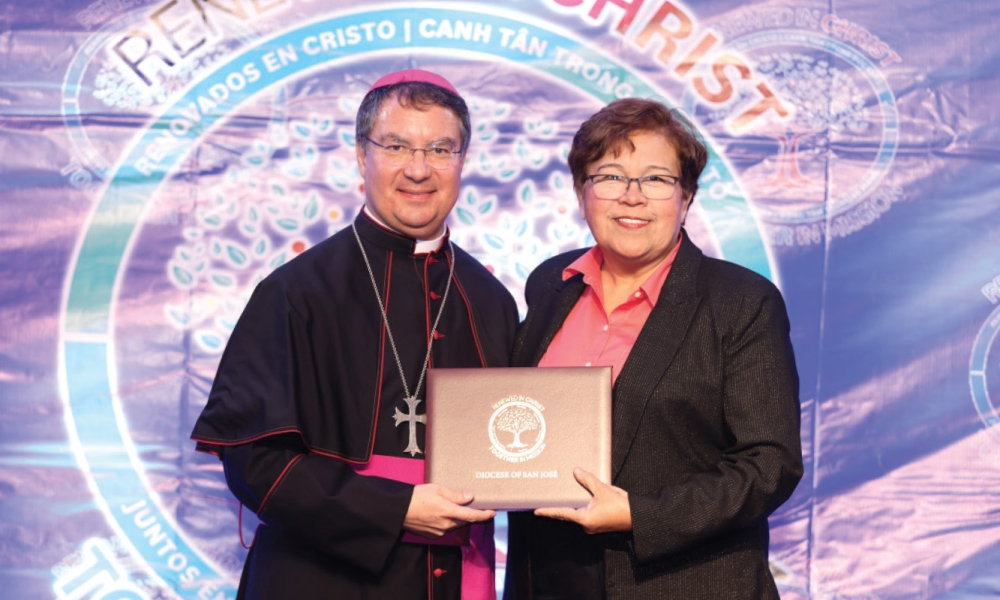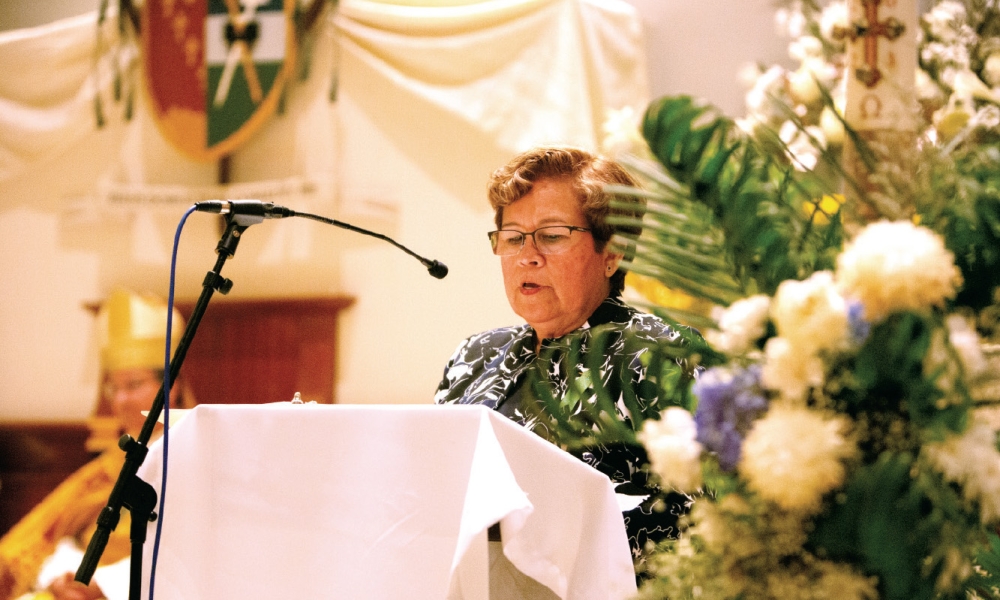
The Journey to 2031: Formation
Conversation with Commissioner Irma G. Alarcón de Rangel, Diocesan Director of the Office of Discipleship Formation and the Institute for Leadership in Ministry
Conversation with Commissioner Irma G. Alarcón de Rangel, Diocesan Director of the Office of Discipleship Formation and the Institute for Leadership in Ministry
What were your expectations going into the pastoral planning process, and how did they change during collaboration with other commissioners?
Formation through the diocese required some change. Since I was a catechist long ago, our focus seemed to be only on forming the children. I have always advocated for parent formation. After seeing the new pastoral plan, I am more convinced and incredibly hopeful that we are in a privileged time where those changes are possible and achievable. This will have an immediate impact on the Church’s relevance today.
How has working on the pastoral plan been personally and spiritually transformative for you?
The work of the pastoral plan process was intense in the sense that we all wanted to do our best and, at the same time, felt responsible for creating a plan that would fully reflect the participants’ responses (thousands of people participated in the synod, and hundreds of delegates joined in the general assembly in January 2023). Experiencing the enthusiasm and dedication of the commissioners was inspirational. We saw the Holy Spirit at work as we developed the content of the pastoral plan and experienced that we shared the same vision. Finally, when we unveiled the pastoral plan, it was deeply heartening.
If you had to choose one or two words encapsulating your pastoral plan commissioner experience, what would those be and why?
Courage and ambition. I felt called to have the courage to believe that what we were doing would affect people so that they would have ample opportunity to draw closer to God and to persist through the challenges that may come along the way. We also needed ambition to envision a better future for the next generation of believers who will experience a new type of evangelization from implementing the plan. That was the most important thing to me personally.
What facet of the Formation priority and action plan excites you most?
All four objectives of the “Formation” strategic plan – prayer, initiation, spiritual growth, and education – are important aspects of forming the person as a disciple. I see the link to the “Family” strategic plan; all the objectives overlap. The family, which is the first “school of formation,” is critical to form disciples. Therefore, the objectives of enriching the catechetical and RCIA processes and seeking excellence in the standards implemented in the parishes will unify how the diocese develops and forms people.
Which aspect of the pastoral plan for Formation do you feel is the most notable change we can look forward to?
The most significant change will be the focus on forming adults. Many people are far from the Church because they were not formed in their faith. With the plan, there will be more retreats and parish-based opportunities for adults, including parents of children going through catechetical formation, to learn about Christ. This will help with community building and support for adults to experience their faith fully for the first time.
Can you comment on the challenges we face as a diocese in implementing the action plan for Formation?
All of us are part of the solution and must be aware that our participation is crucial. The greatest challenge, then, is bringing ourselves to take ownership, to work, and to move in the direction where these changes lead us. Let us all pray for the courage to face change and work to support these changes.
What inspired and guided you or your team as you discerned the plan? Or was there a Church teaching, a religious figure, or a world event you felt guided your discernment?
Personally, the Sacred Heart of Jesus, full of mercy, compassion, and love, as well as Our Lady of Guadalupe, inspire me. Our Lady’s model of evangelization, in how she formed San Juan Diego and chose and transformed him into the vessel of the message, was a great inspiration.
You have a long history working in formation and Institute for Leadership in Ministry (ILM), but how did your already rich understanding of formation grow after working on the pastoral plan for the diocese?
During the general assembly, I realized many delegates were ILM graduates or current students, which deeply affirms the power of formation. Also, working on the pastoral plan gave me a deeper appreciation of the significance of having well-equipped leaders like those formed in the ILM for the upcoming opportunities in formation. They are the workforce that will bring the pastoral plan to reality.
Do you wish to share anything else about the pastoral plan in general?
The pastoral plan seeks to improve many current aspects of the Church, and if we all support and work on its objectives, we will be able to achieve the renewal of the Church – a Church that reaches others and sustains our faith and the faith of new generations. Let us all pray for its success and participate in its implementation!
Irma Alarcon de Rangel is the Director of Discipleship Formation and the Institute for Leadership in Ministry for the Diocese of San Jose. She has been a catechetical director for 24 years, having worked for St. Patrick (now Our Lady of La Vang), St. John Vianney, Christ the King, and St. Lucy parishes before becoming the Director of the Institute for Leadership in Ministry (ILM), and the Office of Faith Formation. She holds a master’s degree in Electrical Engineering from San Jose State University and a master’s degree in Pastoral Ministry from Santa Clara University. This is her sixth year working in the chancery.

